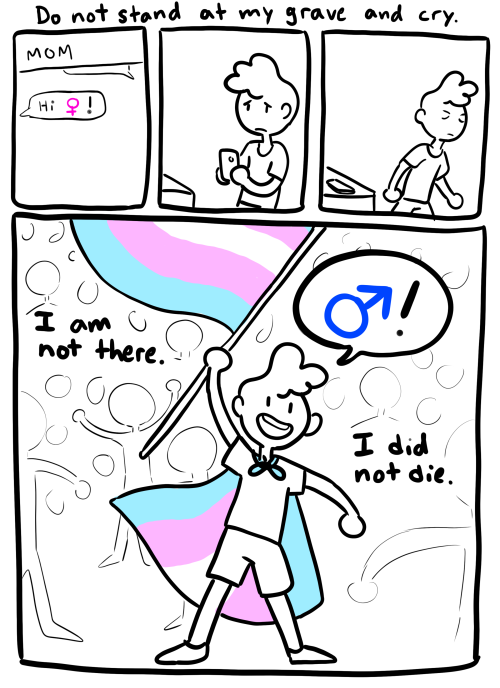Explore The Mystical Beauty Of This Forest Path On A Foggy Day. Let The Enchanting Scenery Captivate

Explore the mystical beauty of this forest path on a foggy day. Let the enchanting scenery captivate your senses and ins...
More Posts from Skelwrites and Others
*writes a sentence or two after writing nothing for days*

How fucking annoying is it when you feel so restless with creative energy but you can’t decide what to do with it and when you finally try to create something it comes out shit so you just give up and sit there being all creatively annoyed and jittery.
*writes two paragraphs after months of literally nothing and it took three hours*

be proud of your original characters. it's no easy task to create a character from scratch, to make them believable and real and human. it takes time. it takes dedication. so what if they aren't perfect right away? so what if there are still things you're only now figuring out after time? characters evolve, they go through changes and arcs and stories just like real people do. and it's okay if your character develops over time, you don't need to have it all figured out right away. there are some things that will only ever clear up after writing them for a while, finding their voice, and seeing the way they interact with other characters. but this is your character, your creation, and you deserve to feel proud about it no matter what.


flower crown





“Do Not Stand At My Grave And Weep” – Mary Elizabeth Frye
Happy Pride 2019!
HOW TO GIVE PERSONALITY TO A CHARACTER
Giving personality to a character is an essential part of character development in storytelling, whether you're writing a novel, screenplay, or creating a character for a role-playing game. Here are some steps and considerations to help you give personality to your character:
Understand Their Backstory:
Start by creating a detailed backstory for your character. Where were they born? What were their childhood experiences like? What significant events have shaped their life? Understanding their past can help you determine their motivations, fears, and desires.
2. Define Their Goals and Motivations:
Characters often become more interesting when they have clear goals and motivations. What does your character want? It could be something tangible like a job or a romantic relationship, or it could be an abstract desire like happiness or freedom.
3. Determine Their Strengths and Weaknesses:
No one is perfect, and characters should reflect this. Identify your character's strengths and weaknesses. This can include physical abilities, intellectual skills, and personality traits. Flaws can make characters relatable and three-dimensional.
4. Consider Their Personality Traits:
Think about your character's personality traits. Are they introverted or extroverted? Shy or outgoing? Kind or selfish? Create a list of traits that describe their character. You can use personality frameworks like the Myers-Briggs Type Indicator or the Big Five Personality Traits as a starting point.
5. Give Them Quirks and Habits:
Quirks and habits can make a character memorable. Do they have a specific way of speaking, a unique fashion style, or an unusual hobby? These details can help bring your character to life.
6. Explore Their Relationships:
Characters don't exist in isolation. Consider how your character interacts with others. What are their relationships like with family, friends, and enemies? These relationships can reveal a lot about their personality.
7. Show, Don't Tell:
Instead of explicitly telling the audience about your character's personality, show it through their actions, dialogue, and decisions. Let the reader or viewer infer their traits based on their behavior.
8. Create Internal Conflict:
Characters with internal conflicts are often more engaging. What inner struggles does your character face? These can be related to their goals, values, or past experiences.
9. Use Character Arcs:
Consider how your character will change or grow throughout the story. Character development is often about how a character evolves in response to the events and challenges they face.
10. Seek Inspiration:
Draw inspiration from real people, other fictional characters, or even historical figures. Study how people with similar traits and backgrounds behave to inform your character's actions and reactions.
11. Write Dialogue and Inner Monologues:
Writing dialogue and inner monologues from your character's perspective can help you get inside their head and understand their thought processes and emotions.
12. Consider the Setting:
The setting of your story can influence your character's personality. For example, a character who grows up in a war-torn environment may have a different personality than one raised in a peaceful, affluent society.
13. Revise and Refine:
Don't be afraid to revise and refine your character as you write and develop your story. Characters can evolve and change as the narrative unfolds.
Remember that well-developed characters are dynamic and multi-faceted. They should feel like real people with strengths, weaknesses, and complexities. As you write and develop your character, put yourself in their shoes and think about how they would react to various situations. This will help you create a compelling and believable personality for your character.
-
 jessandwarrenforever reblogged this · 3 weeks ago
jessandwarrenforever reblogged this · 3 weeks ago -
 thatkillspeople reblogged this · 1 month ago
thatkillspeople reblogged this · 1 month ago -
 wayno08 liked this · 1 month ago
wayno08 liked this · 1 month ago -
 importantmentalityphilosopher liked this · 1 month ago
importantmentalityphilosopher liked this · 1 month ago -
 roguegunn reblogged this · 1 month ago
roguegunn reblogged this · 1 month ago -
 roguegunn liked this · 1 month ago
roguegunn liked this · 1 month ago -
 bigshaw81 liked this · 1 month ago
bigshaw81 liked this · 1 month ago -
 unamacchiasulcuore reblogged this · 1 month ago
unamacchiasulcuore reblogged this · 1 month ago -
 unamacchiasulcuore liked this · 1 month ago
unamacchiasulcuore liked this · 1 month ago -
 azacarhi liked this · 1 month ago
azacarhi liked this · 1 month ago -
 brunobrza liked this · 1 month ago
brunobrza liked this · 1 month ago -
 freakshow777 liked this · 1 month ago
freakshow777 liked this · 1 month ago -
 midnighdreams liked this · 1 month ago
midnighdreams liked this · 1 month ago -
 auroradawn99 liked this · 1 month ago
auroradawn99 liked this · 1 month ago -
 forestduck reblogged this · 1 month ago
forestduck reblogged this · 1 month ago -
 hrt2soup reblogged this · 1 month ago
hrt2soup reblogged this · 1 month ago -
 lakes-trees-and-sun liked this · 1 month ago
lakes-trees-and-sun liked this · 1 month ago -
 a-home-to-a-life reblogged this · 1 month ago
a-home-to-a-life reblogged this · 1 month ago -
 tacoflavoredlipgloss liked this · 1 month ago
tacoflavoredlipgloss liked this · 1 month ago -
 hesbythecampfire reblogged this · 1 month ago
hesbythecampfire reblogged this · 1 month ago -
 little--mermaid--luna reblogged this · 1 month ago
little--mermaid--luna reblogged this · 1 month ago -
 moonlit-angel-serenity liked this · 1 month ago
moonlit-angel-serenity liked this · 1 month ago -
 therebloggingsillygoodboy liked this · 1 month ago
therebloggingsillygoodboy liked this · 1 month ago -
 zremht liked this · 1 month ago
zremht liked this · 1 month ago -
 omgitsdana reblogged this · 1 month ago
omgitsdana reblogged this · 1 month ago -
 omgitsdana liked this · 1 month ago
omgitsdana liked this · 1 month ago -
 bxdtime-ceai reblogged this · 1 month ago
bxdtime-ceai reblogged this · 1 month ago -
 bxdtime-ceai liked this · 1 month ago
bxdtime-ceai liked this · 1 month ago -
 forestduck reblogged this · 1 month ago
forestduck reblogged this · 1 month ago -
 chuslara liked this · 1 month ago
chuslara liked this · 1 month ago -
 ravenheart-1995 reblogged this · 1 month ago
ravenheart-1995 reblogged this · 1 month ago -
 tickoflovebombs reblogged this · 1 month ago
tickoflovebombs reblogged this · 1 month ago -
 talentlessly liked this · 1 month ago
talentlessly liked this · 1 month ago -
 pinayprincessvixen liked this · 2 months ago
pinayprincessvixen liked this · 2 months ago -
 tout-ce-qui-est-beau reblogged this · 2 months ago
tout-ce-qui-est-beau reblogged this · 2 months ago -
 tout-ce-qui-est-beau liked this · 2 months ago
tout-ce-qui-est-beau liked this · 2 months ago -
 kreas13 reblogged this · 2 months ago
kreas13 reblogged this · 2 months ago -
 kreas13 liked this · 2 months ago
kreas13 liked this · 2 months ago -
 pacogabby liked this · 2 months ago
pacogabby liked this · 2 months ago -
 glryb2gd reblogged this · 2 months ago
glryb2gd reblogged this · 2 months ago -
 glryb2gd liked this · 2 months ago
glryb2gd liked this · 2 months ago -
 casual-nerf-herders-stuff liked this · 2 months ago
casual-nerf-herders-stuff liked this · 2 months ago -
 monochromaticclowngirl liked this · 2 months ago
monochromaticclowngirl liked this · 2 months ago -
 power-to-the-peaceful reblogged this · 2 months ago
power-to-the-peaceful reblogged this · 2 months ago -
 power-to-the-peaceful liked this · 2 months ago
power-to-the-peaceful liked this · 2 months ago -
 nickmtb91 liked this · 2 months ago
nickmtb91 liked this · 2 months ago -
 jpatt6879 liked this · 2 months ago
jpatt6879 liked this · 2 months ago

>skel / he/him / 26 / 🏳️🌈🏳️⚧️ / ontario / eastern time / devoted to the Gods / writeblr & langblr
260 posts

